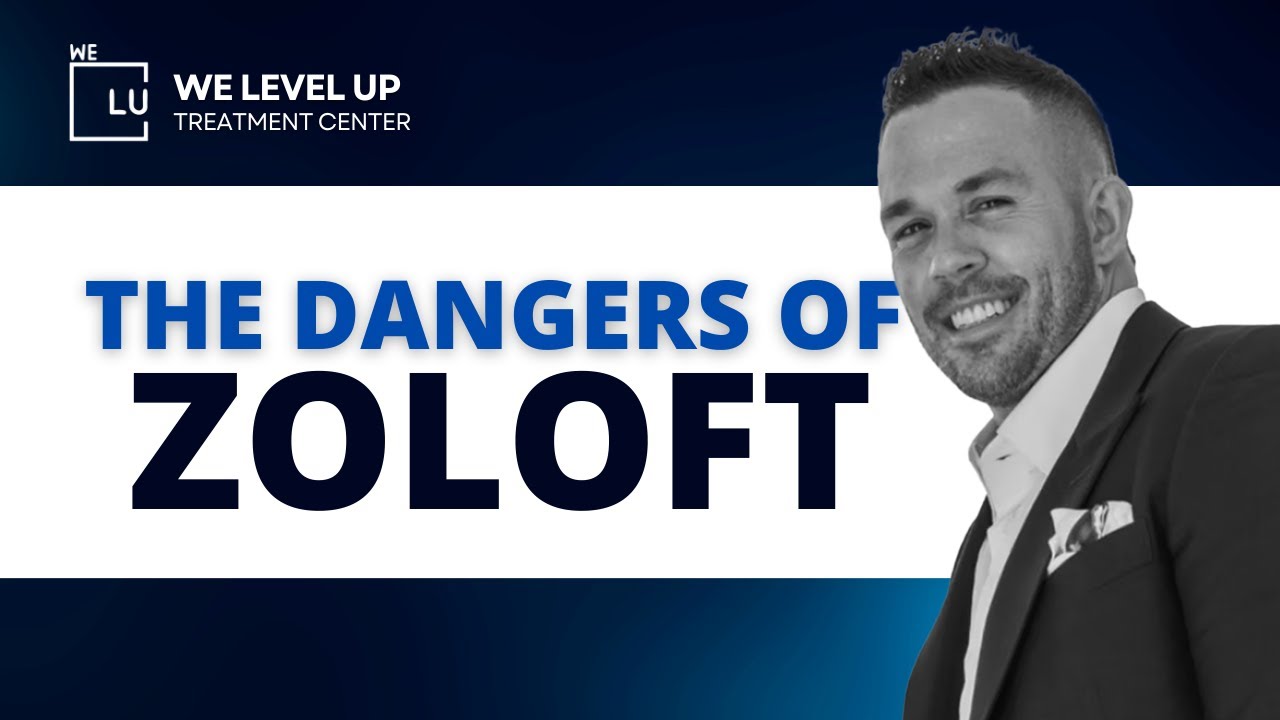What is Ketamine?
Ketamine (ketamine hydrochloride) is a medication in short-term medical procedures that does not require skeletal muscle relaxation, and it has FDA approval for the induction of general anesthesia as a pre-anesthetic to other anesthetic agents. You can prevent ketamine side effects when you only use the drug in a controlled medical setting. [1]
Ketamine is a Schedule III substance under the Controlled Substances Act. According to the DEA, abuse of Schedule III substances may lead to physical or psychological dependence on the drug. [2]
Ketamine use among young adults and high school students is a particular concern. According to the Drug Abuse Warning Network, individuals aged 12 to 25 accounted for 74% of the ketamine emergency department mentions in the US. Also, nearly 3% of high school seniors in the US used the drug at least once in the past year. [3]
Short-Term Ketamine Side Effects in Humans
Ketamine is widely used for anesthesia and analgesia in the veterinary setting. In humans, it serves as an anesthetic to induce a dissociative state and manage pain. [4]
Generally, the most common short-term side effects in humans include:
- Dizziness.
- Hallucinations.
- Nausea and vomiting.
- Increased heart rate.
- Elevated blood pressure.
- Disorientation.
- Changes in perception of time and space.
- Confusion.
- Impaired coordination.
- Blurred vision.
Long-Term Side Effects of Ketamine Treatment
Extended usage of ketamine has sparked concerns because of its possible effects on several physiological and psychological aspects, especially when it comes to experimental uses in mental health or chronic pain management.
According to research published by the US NCBI PubMed Journal Review, ketamine usage over time may exacerbate cognitive impairment by impairing executive and memory skills. Also, there have been instances of ketamine-related bladder dysfunction, which is characterized by inflammation and damage to the bladder wall, raising concerns for the genitourinary system as well. Renal problems have been noted in long-term users, including ketamine-induced nephropathy, indicating possible hazards to renal health. [5]
Other most common long-term effects of ketamine include:
- Psychological dependence.
- Gastrointestinal problems.
- Increased blood pressure.
- Kidney dysfunction.
- Mood disorders.
- Hallucinations (persistent).
- Respiratory problems (with chronic use).

Skip To:
Learn More:
- Ketamine Addiction Effects, Symptoms, Dangers, and Treatment
- Ketamine Holes, The Out-of-Body Effects of the Drug, and Abuse
- Does Ketamine Therapy Get You High? Ketamine Uses and Abuse
- How Long Does Ketamine Stay in Your System? Uses and Timeline
- Is Ketamine an Opioid? Ketamine Uses, Effects, and Abuse
- Ketamine Withdrawal Symptoms, Timeline, and Detox Treatment
- Dangers of Mixing Alcohol and Ketamine, Effects, and Abuse
The Effects of Ketamine Addiction
According to the National Drug Intelligence Center, ketamine abuse gained popularity when users discovered that it produced effects similar to those associated with PCP. Because of its anesthetic properties, ketamine has also reportedly been used by sexual predators to incapacitate their intended victims. [6]
The most common adverse effects of abusing ketamine include:
- Cognitive impairment.
- Memory loss.
- Mood swings.
- Impaired judgment.
- Social and occupational dysfunction.
- Financial difficulties.
- Relationship problems.
- Increased risk of accidents or injuries.
- Physical health issues.
- Withdrawal symptoms upon cessation.
Low-Dose Ketamine Side Effects
Low-dose ketamine has benefits in pain management. It can help reduce the need for opioids and lower tolerance to them. Ketamine is especially useful in chronic pain conditions where the spinal cord is decompressed. Besides providing pain relief, it can also lessen heightened sensitivity and pain triggered by non-painful stimuli. [7]
Nevertheless, the most common side effects of low-dose ketamine are:
- Dizziness.
- Nausea.
- Increased heart rate.
- Elevated blood pressure.
- Changes in perception.
- Mild confusion.
- Blurred vision.
- Slurred speech.
- Impaired coordination.
- Sweating.
Long-Term Side Effects of Ketamine for Depression
The US NCBI PubMed Journal Review published a study revealing that a single use of ketamine for the treatment of depression could cause adverse symptoms, including:
- Dizziness.
- Blurred vision.
- Headache.
- Nausea.
- Vomiting.
- Dry mouth.
Still, these adverse effects are generally not severe and resolved after dose administration. It has also been proposed that, although the side effect of blood pressure elevation during and shortly after a 40-minute ketamine infusion is transient, careful monitoring is required for patients with a history of cardiovascular disease as transient blood pressure elevations may be problematic in such patients. A recent systemic review reported that it is still difficult to conclude that repeated ketamine dosing has a cumulative effect and long-term risk because of insufficient data. [8]
Other most common side effects of ketamine depression therapy include:
- Cognitive impairment.
- Memory issues.
- Mood swings.
- Dependency or addiction.
- Bladder problems.
- Gastrointestinal issues.
- Renal (kidney) dysfunction.
- Persistent hallucinations.
- Respiratory issues (with chronic use).
- Impact on overall mental health and well-being.
Patients should have informed discussions with their healthcare providers on the advantages, drawbacks, and acceptability of ketamine therapy for their particular cases, given the potential for instant antidepressant effects. This cooperative method guarantees that forthcoming patients are knowledgeable and capable of making preferences that support their general mental health and well-being.
Get Help. Get Better. Get Your Life Back.
Searching for Accredited Drug and Alcohol Rehab Centers Near You? We Level Up Texas Is Opening Soon!
Even if you have failed previously and relapsed, or are in the middle of a difficult crisis, we stand ready to support you. Our trusted behavioral health specialists will not give up on you. When you feel ready or just want someone to speak to about therapy alternatives to change your life call us. Even if we cannot assist you, we will lead you to wherever you can get support. There is no obligation. Call our network hotline today.
FREE Addiction Hotline – Call 24/7What Does Ketamine Do to Your Brain and Body?
Ketamine abuse can lead to ongoing mental health issues and flashbacks even when not using the drug. Using ketamine too much increases the chance of having these flashbacks. It can also harm the brain’s nerve cells, affecting how you think and remember things. [9]
Using an excessive amount of ketamine can swiftly cause psychological dependence. Addiction results from higher dosages and more recurring use of ketamine as your tolerance grows.
Most withdrawal symptoms go away after quitting in a few days, but some people experience them for weeks, which makes the process of detoxing from the drug more complex. Some individuals are predisposed to take ketamine once again during this period in an attempt to relieve their suffering.
The most common symptoms of ketamine withdrawals are:
- Irritability.
- Cravings.
- Difficulty concentrating.
- Fatigue.
- Mood changes.
- Increased anxiety.
- Insomnia.
- Sweating.
- Shakiness.
- Nausea.
- Hallucinations.
- Changes in appetite.
- Muscle pain.
- Tremors.
- Rapid heartbeat.
- Restlessness.
- Vivid dreams or nightmares.
- Feeling emotionally flat.
- Social withdrawal.

Ketamine recreational users and abusers frequently experience a range of symptoms that resemble psychosis or a psychotic episode. A ketamine user experiencing a psychotic episode may speak, believe, or act in ways that are inconsistent with reality. After taking the Ketamine, they were more likely to have disorganized thinking and may have had trouble trying to finish simple words.
Loss of connection to reality is a hallmark of psychosis. Someone can have incorrect beliefs or delusions that are based on hallucinations. Their ability to perform at work, in the home, and society is substantially impacted by ketamine psychosis. Psychosis sufferers frequently have poor physical conditions. The greater the psychotic symptoms are, the higher the related level of impairment. People frequently have difficulty telling the difference between psychotic disorders like bipolar disorder or other similar disorders and drug-induced psychosis.
Side Effects of Ketamine Infusion for Pain
According to the NIH study, given ketamine’s efficacy for depression and possibly posttraumatic stress, it may relieve not only the sensory-discriminative component but also the affective-motivational component of pain. However, patients undergoing procedures that are expected to have mild pain levels do not benefit from ketamine infusion. [10]
The most common adverse effects of ketamine for pain management include:
- Nausea.
- Vomiting.
- Dizziness.
- Increased heart rate.
- Elevated blood pressure.
- Confusion.
- Blurred vision.
- Fatigue.
- Headache.
- Hallucinations.
Opening Soon! First-Class Facilities & Amenities
World-Class High-Quality Addiction & Mental Health Rehabilitation Treatment
Coming Soon! Rehab Centers TourRenowned Addiction Centers. Serene Private Facilities. Inpatient Rehab Programs Vary.
FREE Addiction Hotline – Call 24/7Proven recovery success experience, backed by a Team with History of:
15+
Years of Unified Experience
100s
5-Star Reviews Across Our Centers
10K
Recovery Success Stories Across Our Network
- Low Patient to Therapist Ratio
- Onsite Medical Detox Center
- Comprehensive Dual-Diagnosis Treatment
- Complimentary Family & Alumni Programs
- Coaching, Recovery & Personal Development Events
We Level Up Texas Ketamine Addiction Rehab (Opening Soon!)
Medical detox is a critical first step in developing a comprehensive and tailored treatment plan for ketamine addiction. Acknowledging your addiction’s warning signs and admitting you need treatment is essential. To determine the best course of action, this often involves having a trained addiction specialist evaluate you for substance use disorder.
Once detox is complete, a new doorway in ketamine addiction treatment opens up, which is referred to as an inpatient drug rehab or residential level of care. Our residential care program slowly and effectively introduces the individual into an atmosphere of therapeutic growth, marked by master’s level therapists, clinicians, group counselors, psychiatrists, and a community of like-minded individuals with the same aim: to attain sobriety and live a great life.
Programs for inpatient recovery offer a medically supervised, controlled environment that is available around the clock, facilitating the procedure of detoxification and treating both the physical and mental elements of addiction. Comprehending the underlying reasons for dependence and developing coping skills are crucial outcomes of both individual and group therapy. When it comes to treating the thinking patterns and behaviors connected to ketamine drug use, cognitive-behavioral therapy (CBT) is particularly successful.
Detoxification helps remove ketamine from the body, managing withdrawal symptoms and ensuring physical stabilization. However, it’s crucial to follow up with comprehensive addiction therapy.
As you detox from ketamine, maintain your healthy diet and exercise practices. Your body and mind need this healthy lifestyle to overcome detox challenges. To help with your treatment and recovery, our rehab amenities provide a range of activities, rejuvenating meals, and peaceful surroundings. Recreational workouts may also be a helpful diversion from detox symptoms.
Also, follow-up care is crucial once a formal treatment program is completed. Participating in support groups, creating a relapse prevention technique, and immersing in therapy may all be part of this. Ongoing healing requires adopting a comprehensive well-being perspective that includes good lifestyle choices.
Opening Soon! World-class, Accredited, Anticipated 5-Star Reviewed, Effective Addiction & Mental Health Programs. Complete Behavioral Health Inpatient Rehab, Detox plus Co-occuring Disorders Therapy.
FREE Addiction Hotline – Call 24/7End the Addiction Pain. End the Emotional Rollercoaster. Get Your Life Back. Start Drug, Alcohol & Dual Diagnosis Mental Health Treatment Now. Get Free No-obligation Guidance by Substance Abuse Specialists Who Understand Addiction & Mental Health Recovery & Know How to Help.
Prescription Drug Abuse Recovery and Sobriety Story — Testimonial Video
Start a New Life
Begin with a free call to an addiction & behavioral health treatment advisor. Learn more about our dual-diagnosis programs. The We Level Up treatment center network delivers recovery programs that vary by each treatment facility. Call to learn more.
- Personalized Care
- Caring Accountable Staff
- World-class Amenities
- Licensed & Accredited
- Renowned w/ 100s 5-Star Reviews
We’ll Call You
Search We Level Up Texas Ketamine Side Effects Treatment, Mental Health Topics, and Resources
Sources
[1] What is Ketamine? Rosenbaum SB, Gupta V, Patel P, et al. Ketamine. [Updated 2023 May 26]. In: StatPearls [Internet]. Treasure Island (FL): StatPearls Publishing; 2023 Jan-. Available from: https://www.ncbi.nlm.nih.gov/books/NBK470357/ Research related to ketamine’s drug dose side effects; ketamine therapy side effects; ketamine infusion side effects; low dose ketamine side effects; long term effects of ketamine; ketamine effects on brain.
[2] Ketamine – Drug Enforcement Administration (DEA)
[3,6] Ketamine Fast Facts – National Drug Intelligence Center
[4] Hartsfield SM. Advantages and guidelines for using ketamine for induction of anesthesia. Vet Clin North Am Small Anim Pract. 1992 Mar;22(2):266-7. Doi: 10.1016/s0195-5616(92)50604-0. PMID: 1585548.
[5] Brucculeri M, Johnson D, Yang Y, Rennke H. Ketamine-Induced Acute Interstitial Nephritis. Kidney Int Rep. 2022 Dec 30;8(4):929-931. Doi: 10.1016/j.ekir.2022.12.015. PMID: 37069996; PMCID: PMC10105040.
[7] Riccardi A, Guarino M, Serra S, Spampinato MD, Vanni S, Shiffer D, Voza A, Fabbri A, De Iaco F; Study and Research Center of the Italian Society of Emergency Medicine. Narrative Review: Low-Dose Ketamine for Pain Management. J Clin Med. 2023 May 2;12(9):3256. Doi: 10.3390/jcm12093256. PMID: 37176696; PMCID: PMC10179418.
[8] Shin C, Kim YK. Ketamine in Major Depressive Disorder: Mechanisms and Future Perspectives. Psychiatry Investig. 2020 Mar;17(3):181-192. Doi: 10.30773/pi.2019.0236. Epub 2020 Mar 23. PMID: 32209965; PMCID: PMC7113176.
[9] Strous JFM, Weeland CJ, van der Draai FA, Daams JG, Denys D, Lok A, Schoevers RA, Figee M. Brain Changes Associated With Long-Term Ketamine Abuse, A Systematic Review. Front Neuroanat. 2022 Mar 18;16:795231. Doi: 10.3389/fnana.2022.795231. PMID: 35370568; PMCID: PMC8972190.
[10] Orhurhu VJ, Roberts JS, Ly N, et al. Ketamine in Acute and Chronic Pain Management. [Updated 2023 Sep 4]. In: StatPearls [Internet]. Treasure Island (FL): StatPearls Publishing; 2023 Jan-. Available from: https://www.ncbi.nlm.nih.gov/books/NBK539824/







